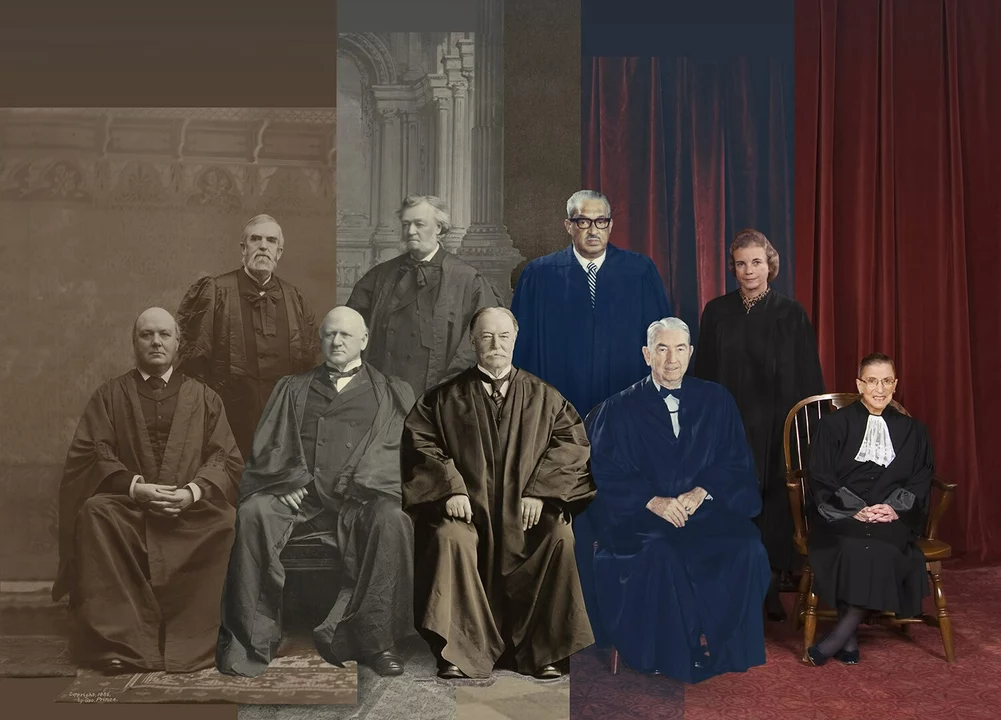Introduction: The Supreme Court's Stance on Government Involvement in Previous Rulings
In the complex and evolving landscape of the United States legal system, the Supreme Court often finds itself tasked with interpreting the role of government in previous rulings. As an American citizen, I find it crucial to stay informed and have a clear understanding of the highest court's perspective on government intervention. In this article, I will delve into five key areas where the Supreme Court has made statements on the government's role in earlier rulings. By examining these instances, we can better comprehend the principles guiding the Supreme Court's decisions and how they shape the legal landscape of our nation.
The Principle of Stare Decisis: Upholding Precedents
One of the most important concepts in the American legal system is the principle of stare decisis, which means "to stand by things decided." This principle dictates that courts should generally adhere to previous rulings on similar cases to promote consistency and predictability in the law. The Supreme Court has emphasized the importance of this principle in multiple instances, highlighting the need for government and lower courts to respect and uphold earlier decisions. In doing so, the Court has established the value of maintaining stability in the legal system and limiting the government's ability to disrupt that stability.
However, the Supreme Court has also acknowledged that stare decisis is not an absolute rule. In some cases, the Court has overturned previous rulings when they are deemed to be egregiously wrong or when societal and legal conditions have changed significantly. This demonstrates the Court's understanding that the government's role should be balanced with the need for the legal system to adapt and evolve.
Judicial Review: Ensuring Government Compliance with the Constitution
The Supreme Court's power of judicial review is an essential aspect of its role in shaping the United States' legal landscape. This power allows the Court to review and potentially invalidate government actions that are found to be unconstitutional. By exercising this authority, the Supreme Court ensures that the government remains accountable for its actions and adheres to the principles outlined in the Constitution.
Throughout its history, the Supreme Court has made numerous statements on the importance of judicial review and its implications for government involvement in previous rulings. The Court has consistently maintained that the government must respect the Constitution's boundaries and operate within its limits, even if that means overturning earlier decisions that violate those limits. This stance highlights the Supreme Court's commitment to preserving the integrity of the Constitution and limiting government overreach.
Separation of Powers: Preserving the Balance between Branches of Government
The United States Constitution establishes a system of government based on the separation of powers, dividing authority among the executive, legislative, and judicial branches. This system is designed to prevent any single branch from becoming too powerful and to maintain a balance between the branches. The Supreme Court has often addressed the importance of upholding this separation of powers in its rulings and statements on the government's role in earlier decisions.
By emphasizing the importance of the separation of powers, the Supreme Court has made it clear that the government must respect the distinct roles and responsibilities of each branch. This includes recognizing the Court's authority to interpret the law and the Constitution, limiting the government's ability to interfere with the judiciary's independence. This stance serves as a crucial safeguard against potential abuses of power and ensures the continued functioning of our democratic system.
Federalism: Balancing State and Federal Authority
Another key principle guiding the Supreme Court's statements on the government's role in earlier rulings is federalism, which refers to the division of authority between state and federal governments. The Court has often emphasized the importance of maintaining a balance between these levels of government, ensuring that neither becomes too powerful or encroaches on the other's jurisdiction. This concept is essential to preserving the balance of power and preventing the centralization of authority in the federal government.
Through its rulings and statements, the Supreme Court has made it clear that both state and federal governments must respect the boundaries established by the Constitution and work cooperatively within their respective spheres of authority. This approach reinforces the idea that government power should be dispersed and limited, promoting a more resilient and adaptable legal system.
Protecting Individual Rights: Limiting Government Intrusion
Lastly, the Supreme Court has often addressed the government's role in earlier rulings concerning individual rights and civil liberties. As the ultimate interpreter of the Constitution, the Court plays a vital role in determining the extent to which the government can regulate or restrict these rights. The Court's statements on this subject have consistently emphasized the need to protect individual rights and limit government intrusion, even if that means overturning prior decisions that infringe on those rights.
By asserting the importance of safeguarding civil liberties, the Supreme Court has demonstrated its commitment to upholding the principles enshrined in the Constitution and ensuring that the government remains accountable for its actions. This stance serves not only to protect individual rights but also to maintain the balance of power and prevent government overreach.
Conclusion
In summary, the Supreme Court's statements on the government's role in earlier rulings reveal a consistent emphasis on upholding crucial legal principles, such as stare decisis, separation of powers, federalism, and the protection of individual rights. By adhering to these principles, the Court seeks to preserve the integrity of our legal system, maintain the balance of power, and ensure that the government remains accountable to the Constitution. As citizens, it is essential to understand and appreciate the Supreme Court's role in shaping our nation's legal landscape and the principles that guide its decisions.

 Government & Politics
Government & Politics